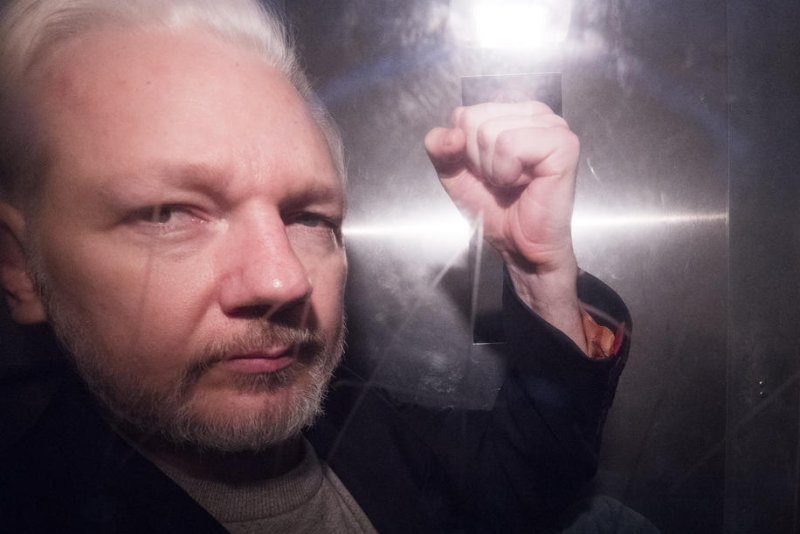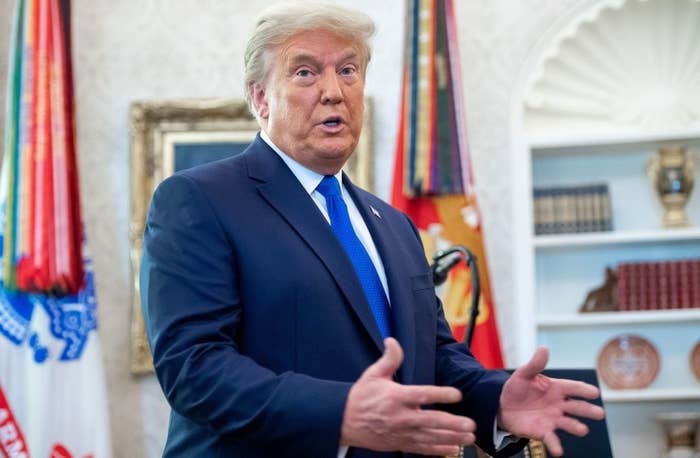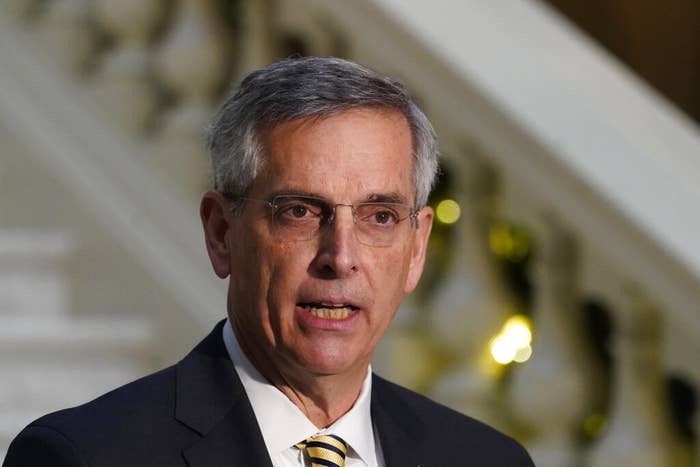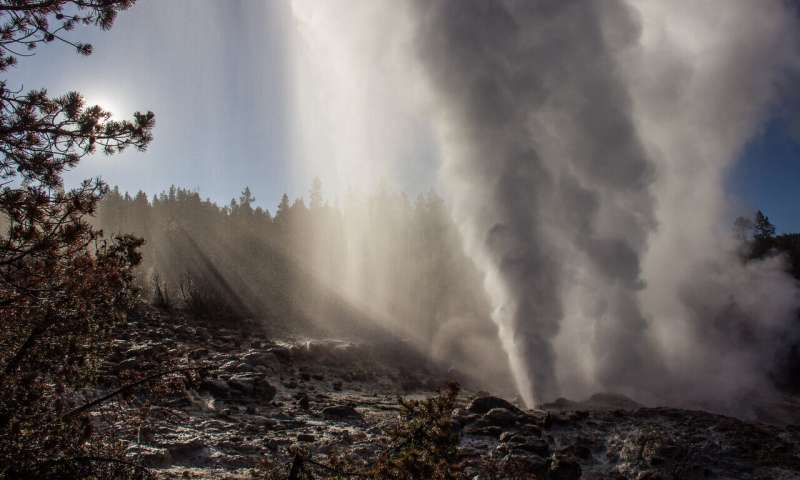"Let this be the end of it," said whistleblower Edward Snowden.
by Jake Johnson, staff writer

"The decision was based on the U.S. prison system being so awful and repressive that Assange would be at significant suicide risk," noted Trevor Timm, executive director of the Freedom of the Press Foundation. (Photo: Claire Doherty/Getty Images)
This is a breaking news story... Check back for updates...
A British judge early Monday rejected the Trump administration's attempt to extradite Julian Assange to the United States, citing the risk such a move would pose to the WikiLeaks founder and publisher's life.
Judge Vanessa Baraitser of the Westminster Magistrates' Court warned that extradition "would be oppressive by reason of Assange's mental health" and said the risk of the publisher committing suicide in a U.S. prison would be "substantial."
"Wow. The decision was based on the U.S. prison system being so awful and repressive that Assange would be at significant suicide risk," tweeted Trevor Timm, executive director of the Freedom of the Press Foundation (FPF).
This is one thing Americans should really reflect on. The British are as authoritarian as it gets in W. Europe, deeply subservient to the US. Yet this is the third time they're refused to extradite on the grounds that the US prison system is barbaric:pic.twitter.com/ZDqLT2McB7
— Glenn Greenwald (@ggreenwald) January 4, 2021
The U.S. is expected to appeal the ruling (pdf). Pending U.S. appeal, Assange's lawyers are asking that he be released on bail from London's notorious Belmarsh prison, where the WikiLeaks founder has been detained since 2019.
While the judge did not reject the U.S. request due to the threat extradition would pose to press freedoms, advocates nevertheless celebrated the judge's decision as "a huge relief to anyone who cares about the rights of journalists."
If extradited to the U.S., Assange would face a sentence of up to 175 years in prison for publishing classified documents—something journalists do all the time.
"The case against Julian Assange is the most dangerous threat to U.S. press freedom in decades," noted FPF. "The extradition request was not decided on press freedom grounds; rather, the judge essentially ruled the U.S. prison system was too repressive to extradite. However, the result will protect journalists everywhere."
In response to Baraitser's decision, NSA whistleblower Edward Snowden tweeted simply, "Let this be the end of it."
A British judge rejected the US’s request for Assange’s extradition. Now Mexico has stepped in.
Posted on January 4, 2021

Henry Nicholls / Reuters
Julian Assange leaves court in London after being sentenced on May 1, 2019.
MEXICO CITY — Mexico has offered political asylum to WikiLeaks founder Julian Assange shortly after the US’s request to extradite him was rejected by a judge in the UK.
“It is a triumph of justice. I celebrate that England acted in this way because Assange is a journalist and deserves a chance,” Mexican President Andrés Manuel López Obrador said as he made his offer.
On Monday, a British judge ruled that Assange, who faces 17 espionage charges, would be at risk of killing himself if he were placed in isolation in a US prison given the state of his mental health. The Department of Justice said it would continue to seek his extradition to the US.
Vanessa Baraitser, a district judge in England, rejected arguments by Assange’s lawyers — that the charges were an attack on press freedom and politically motivated — and accepted the US's claim that his alleged activities did not count as journalism. The judge based her ruling on medical evidence about his mental health: “The overall impression is of a depressed and sometimes despairing man, who is genuinely fearful about his future. I find that the mental condition of Mr Assange is such that it would be oppressive to extradite him to the United States of America,” she concluded.
Baraitser referenced Jeffrey Epstein's 2019 death in prison as evidence that it's not feasible to prevent suicides in US prisons. She also noted that Assange’s diagnosis of autism spectrum disorder could cause him to kill himself with “single minded determination.”
In the US, prosecutors have indicted Assange on 17 counts of violating the Espionage Act and one charge of computer misuse over the publication on WikiLeaks of military and diplomatic documents, which carry a sentence of up to 175 years in prison.
Assange’s legal team announced that it would make a new appeal for his release from prison in the UK, citing COVID-19 rates at the high-security prison where he is being held.
In 2010, Swedish authorities requested Assange's arrest after two women accused him of rape and sexual assault. The UK arrested Assange, but he jumped bail in 2012, seeking refuge in the Ecuadorian Embassy. In April 2019, Ecuador expelled him from the embassy, and he was arrested and sentenced to 50 weeks in prison for jumping bail. In November, Sweden dropped the charges against him, saying that the evidence it had found was not strong enough to support an indictment.
López Obrador’s announcement was seen by many in Mexico as ironic. His government has been criticized for its harsh treatment of asylum-seekers from neighboring crime-ridden countries in Central America, as well as for the president’s frequent and hostile tirades against journalists, which have included comparing them to criminal gangs. Mexico is the most dangerous country for journalists in the Western Hemisphere, according to the New York–based Committee to Protect Journalists.
His offer to Assange is likely to irritate the incoming US administration, especially after López Obrador’s initial refusal to congratulate President-elect Joe Biden after his win. In his eventual letter to Biden, López Obrador issued an implicit warning against any involvement in Mexico’s internal affairs.
If Assange, 49, is able to take up Mexico’s offer of political asylum, he will land in a country struggling to control the pandemic. Mexico has the fourth-highest rate of deaths in the world, and its capital city is currently in lockdown as its hospitals, virtually out of beds, is bracing for a postholiday surge of patients.
But Assange will find an unlikely ally in the Mexican president.
"Assange is a journalist and deserves a chance," the Mexican president said Monday.
by Andrea Germanos, staff writer COMMON DREAMS

Mexican President Andres Manuel Lopez Obrador speaks at a press conference in Mexico City on Dec. 8, 2020. (Photo: by Francisco Canedo/Xinhua via Getty Images)
Mexican President Andrés Manuel López Obrador on Monday called a U.K. judge's decision not to extradite Julian Assange to the United States "a triumph of justice" and said his country would offer the WikiLeaks founder political asylum.
"Assange is a journalist and deserves a chance," López Obrador, or AMLO as he is frequently called, said at a press conference Monday. The president said that he's in favor of a pardon for Assange, who's been at the maximum-security Belmarsh prison in London since April 2019 and faces 17 counts of violated the Espionage Act.
"I'm going to ask the foreign minister... to ask the U.K. government about the possibility that Mr. Assange go free and that Mexico offer him political asylum," said López Obrador, pointing to "our tradition, which is protection." The asylum offer, he added, would be on the condition that Assange not "interfere in the political affairs of any country."
Mexico's President AMLO announces that Mexico is offering political asylum to Julian Assange, citing not only Mexico's tradition of protecting people from political persecution but also its "responsibility" to do so. https://t.co/3SfM4rEBSi
— Glenn Greenwald (@ggreenwald) January 4, 2021
The asylum offer came the same day Judge Vanessa Baraitser of the Westminster Magistrates' Court rejected the Trump administration's attempt to extradite Assange. Her decision was based not on press freedom grounds but a "substantial" risk Assange would commit suicide in the face of the American incarceration system's harsh conditions.
"Faced with the conditions of near total isolation without the protective factors which limited his risk at Belmarsh, I am satisfied the procedures described by the U.S. will not prevent Mr. Assange from finding a way to commit suicide," said Baraitser, "and for this reason I have decided extradition would be oppressive by reason of mental harm and I order his discharge."
Lopez Obrador has previously spoken out about Assange's plight and previously called Assange's treatment in the London prison torturous.
The president's comment about his country's "tradition" of granting protection is well-grounded. In an op-ed last month at the Washington Post, historian Debbie Sharnak pointed to Mexico's asylum offer to former leftist Bolivian leader Evo Morales. She wrote, in part:
For decades, Mexico has served as a place of asylum for exiles, and this history has become embedded in the fabric of Mexican politics and identity. While Mexico's domestic history often involved political repression and hostility to migrants, the country has consistently projected an image of what scholars have called "revolutionary progress" through its high-profile offers of asylum to exiled leaders. Seeking to consolidate this reputation in the decades after the Mexican Revolution in the early 20th century, Mexico framed itself as a welcoming place for progressive ideas and persecuted people, a policy that has continued. [...]
López Obrador's offer of asylum to Morales is far from an aberration—and is perhaps part of a strategy to distract the public from Mexico's own treatment of migrants from Central American countries.
Mexico is also the deadliest country in the western hemisphere for journalists, according to the Committee to Protect Journalists.
"When he took office in December 2018, Mexican President Andrés Manuel López Obrador pledged to take concrete steps to end violence against the press and impunity for journalist murders," the press freedom group said last month. "Yet this cycle continues unabated."

Wikileaks co-founder Julian Assange, shown leaving a London courtroom in May 2019, cannot be extradited to the United States, a British judge ruled Monday.
Jan. 4 (UPI) -- A British judge ruled Monday that WikiLeaks co-founder Julian Assange cannot be extradited to the United States, where he faces charges for publishing official defense documents.
District Judge Vanessa Baraitser, in a ruling delivered at London's Old Bailey court, said Assange could not be extradited due to his risk of suicide in the U.S. penal system.
Assange, she said, is "a depressed and sometimes despairing man genuinely fearful about his future," and if extradited, would be "housed in conditions of significant isolation," hampering contact with family.
There was evidence of a risk to Assange's health if he were to face trial in the United States, Baraitser said, adding that the 49-year-old activist's risk of committing suicide appeared to be "substantial."
RELATED Assange lawyer: Trump offered pardon to reveal DNC hack source
Lawyers for the United States immediately said they would appeal the ruling.
Assange was arrested in April 2019 and has since been held in a high-security prison. He had been living in the Ecuadorian Embassy in London since 2012, where he sought asylum to dodge sexual assault charges in Sweden.
Assange was arrested after Ecuador withdrew its offer of asylum. Ecuador's President Lenin Moreno said the country's patience for Assange had "reached its limit" after "repeated violations to international conventions and daily life."
RELATED Judge threatens to remove Assange on 2nd day of extradition hearing
Assange was indicted on 17 new charges of violating the Espionage Act in 2019 and already faced a charge from March 2018 of conspiring to commit unlawful computer intrusion, which carried a maximum five years in prison.
He was accused of working with former intelligence analyst Chelsea Manning to obtain and publicly release classified information. The new charges brought his total charges to 18 counts with each violation of the Espionage Act carrying a maximum 10-year sentence.
Assange has consistently claimed he was acting as a journalist but Baraitser said earlier in extradition hearing that his receipt of thousands of classified files went beyond investigative journalism.
RELATED WikiLeaks founder Julian Assange appears at extradition hearing
In her Monday ruling, the judge dismissed arguments from Assange's legal team that he couldn't be afforded protections under the U.S. Constitution, but agreed that he could not be extradited on health grounds.












